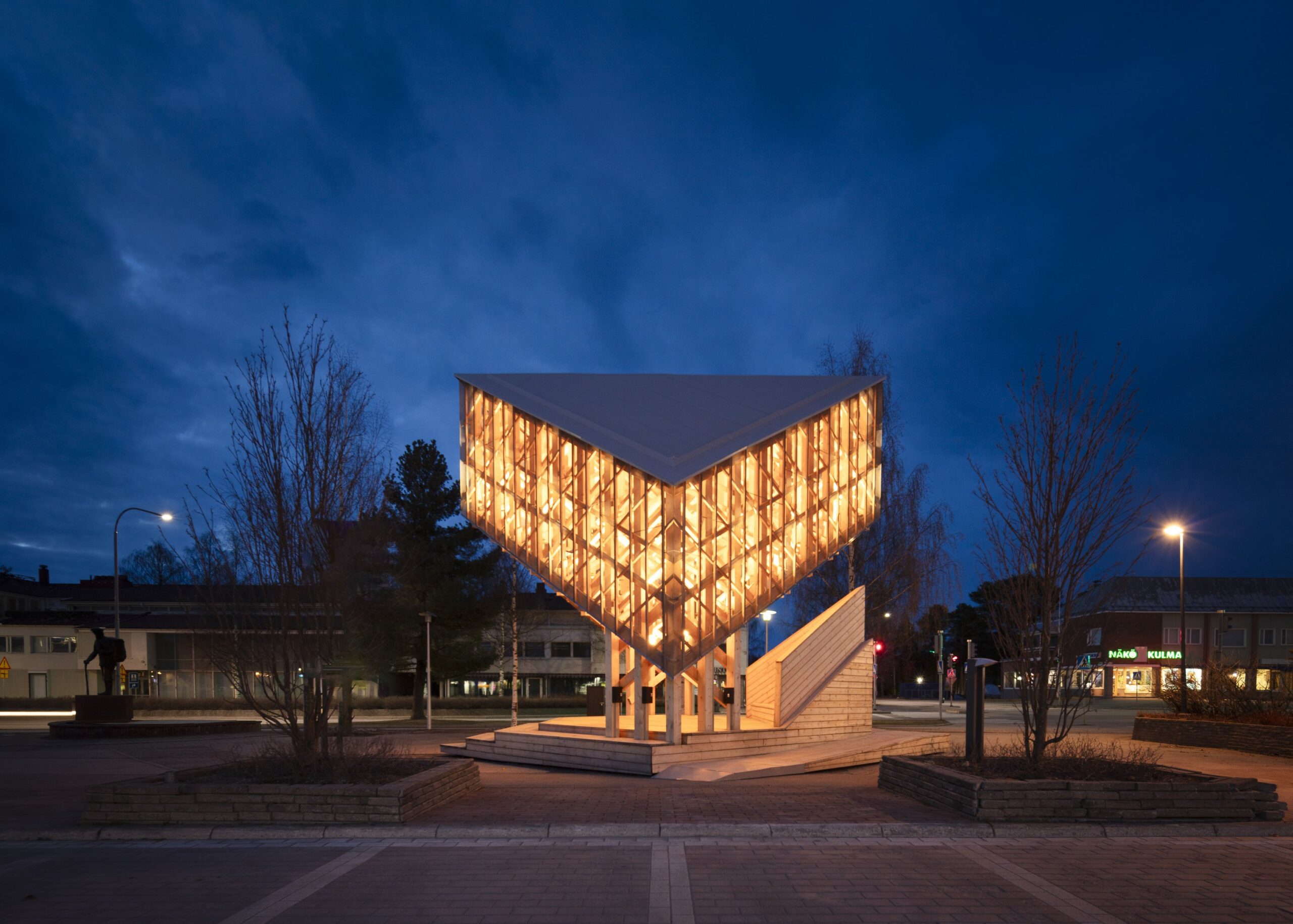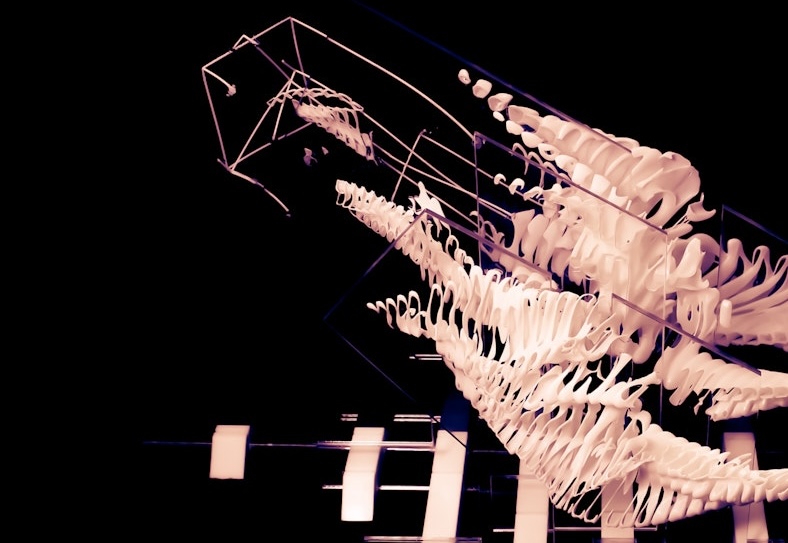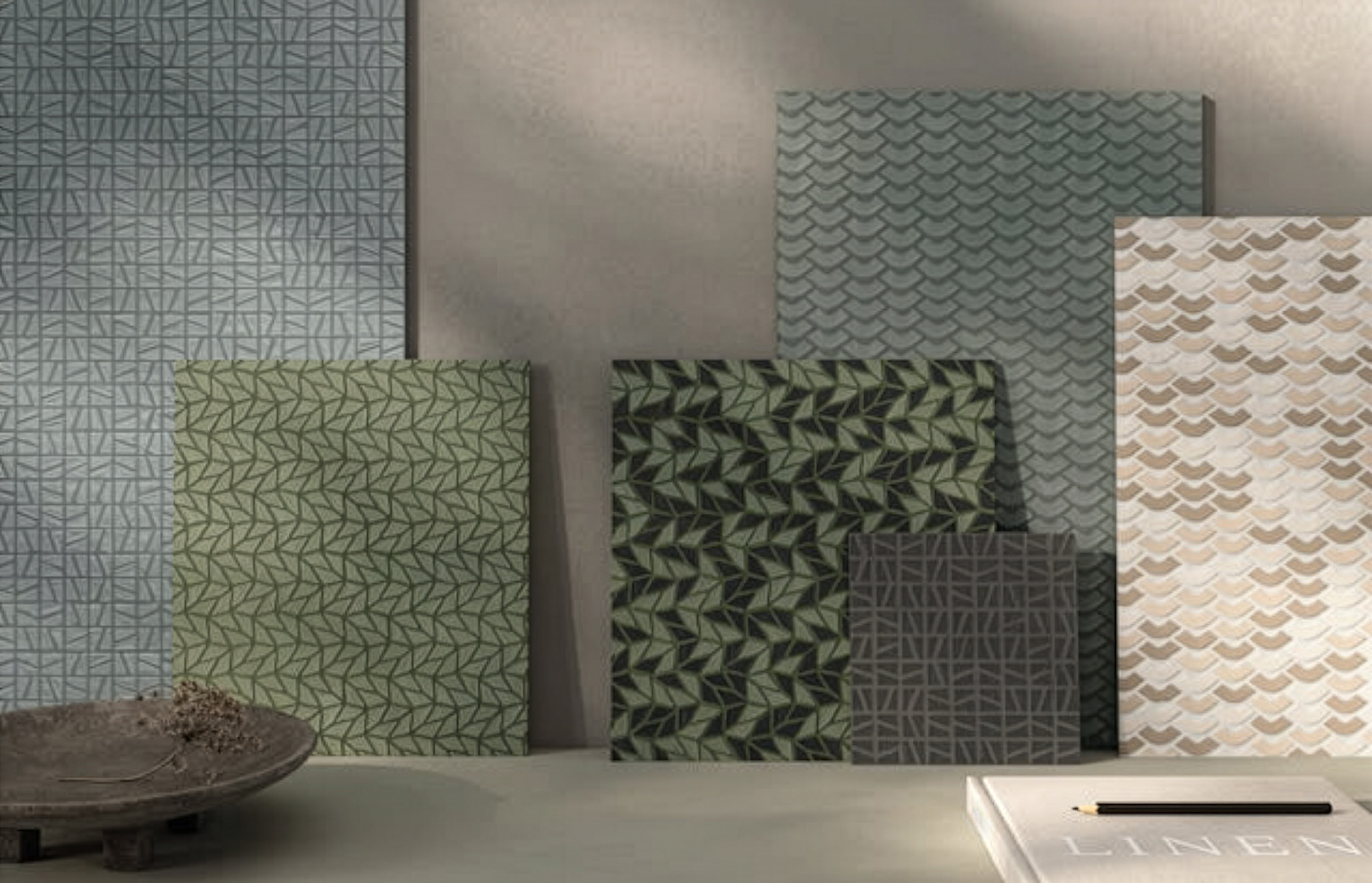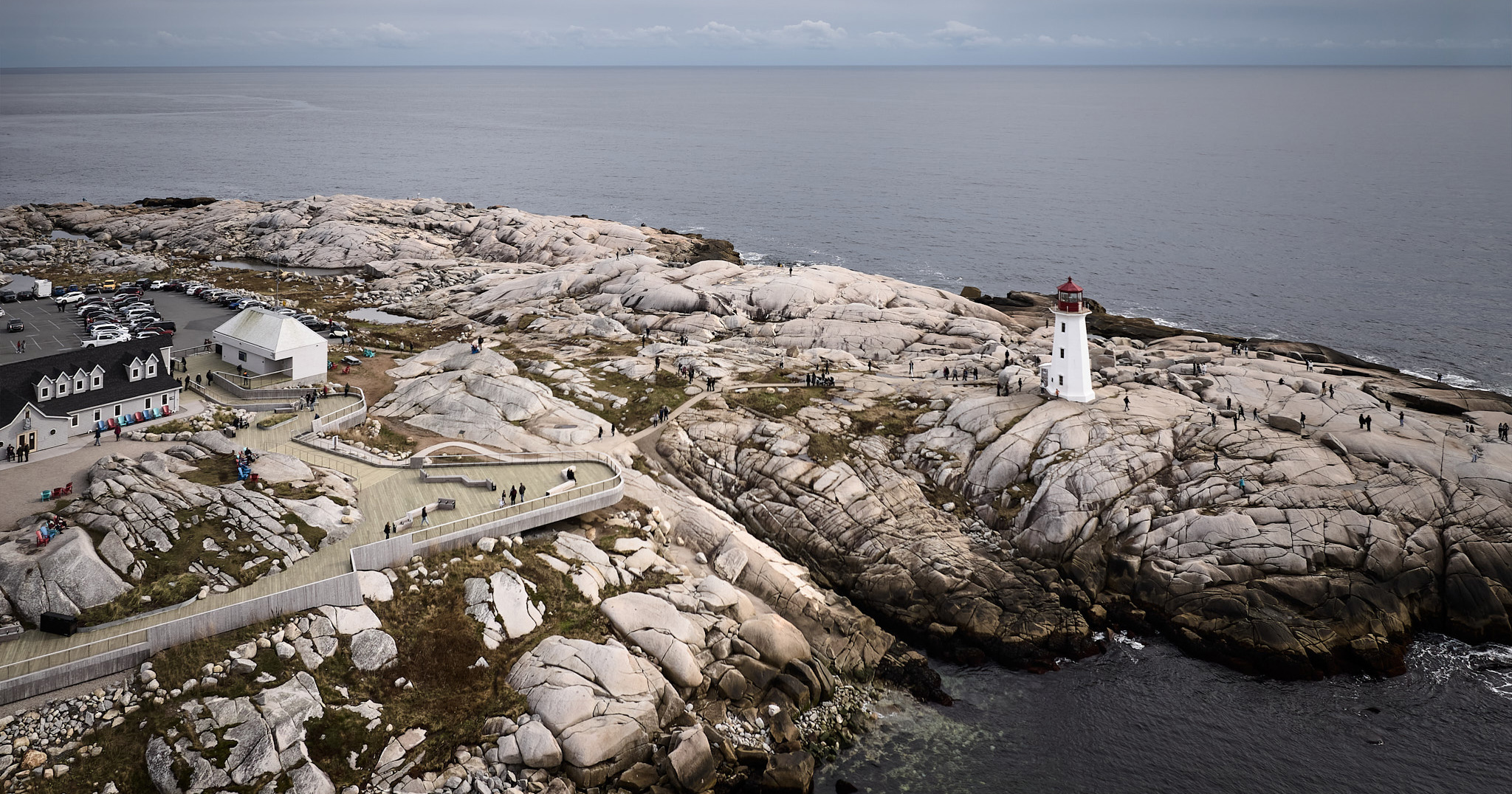Sharjah Architecture Triennial "to challenge the idea that architecture is just about iconic buildings"


Anthropologist Vyjayanthi Rao is set to curate the Sharjah Architecture Triennial in 2026. In this interview, she explains the event's theme.
The third edition of the Sharjah Architecture Triennial, which is set to begin in November next year, will be curated by Rao with writer Tau Tavengwa as associate curator.
The duo chose Architecture Otherwise: Building Civic Infrastructure for Collective Futures as the theme for the event, with the aim of expanding the definition of architecture.
"We chose Architecture Otherwise to challenge the idea that architecture is just about iconic buildings or standardised solutions," Rao told Dezeen.
"Instead, we see it as a way to build meaningful connections – rooted in local realities, informed by global conditions and open to difference," she continued.
"The theme is deliberately open-ended, allowing the triennial participants to use a range of tools, methods and spatial interventions to create the kind of settings often deemed marginal."

Rao is an anthropologist who is a visiting professor at Yale University's school of architecture. Along with Tavengwa, she co-curated the Multiplicity exhibition at the Lisbon Architecture Triennale in 2022.
This background in anthropology will inform the event. It will consider ways that architecture can be used to create strong bonds of community, which have often been lost in fast-paced modern cities.
"Cities reflect our biggest challenges but also hold the tools for change," said Rao.
"By designing urban life around interdependence, care and hospitality, we can use architecture not just to shape space, but to rebuild social bonds and reimagine how we live together."
"We want audiences to see architecture not just as background infrastructure"
Rao hopes that visitors to the event next year will gain a deeper understanding of the wider impact of architecture.
"We hope visitors come away with a renewed sense of how architecture is woven into the fabric of everyday life – not just in iconic buildings or grand designs, but in the ordinary structures, systems and spaces that shape how we live together," she said.
"Ultimately, we want audiences to see architecture not just as background infrastructure or eye-catching spectacle, but as something active and relational: a framework, a membrane, a connective tissue that organises how we relate to each other and to the spaces we inhabit."
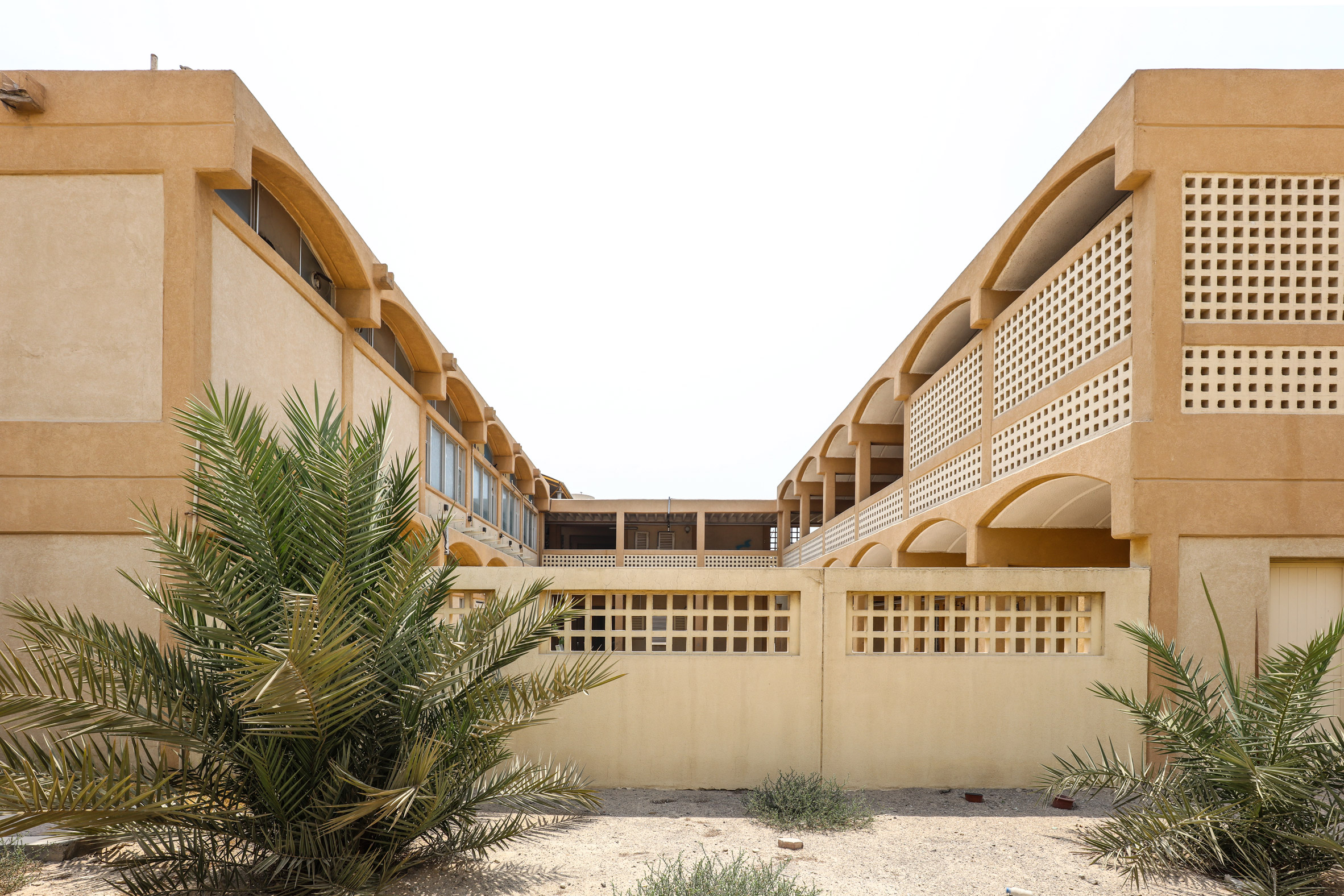
Much of Rao's research has focused on India, and, as with the two previous editions of the event, the triennial will focus on the global south, in particular southern and western Asia as well as Africa.
"Together [with Tavengwa] we have a shared commitment to context-driven, cross-disciplinary practice, whilst acknowledging the entanglement of global processes with localities," explained Rao.
"The challenge is reconnecting these entanglements with regional histories and long-term connections across the global South that pre-date modern colonialism," she continued.
"We are interested in positioning architecture beyond the built form and approaching it as a tool for building culture, as propositions that enable us to cultivate relations between ourselves and others and between ourselves, our environments and the powers that seek to shape our worlds."
"The triennial will be a living, evolving platform"
The event will take place at the 1970s Al-Qasimiyah School, which was refurbished by Sharjah Architecture Triennial founding advisor Mona El Mousfy to become the event's headquarters.
Alongside the main venue, Rao plans to commission installations, exhibitions and performances across the emirate. Selected participants will also be commissioned to create works during month-long residences.
"The triennial will be a living, evolving platform – activating ideas and collaborations well before it opens and ideally long after it closes," explained Rao.
"It's less about building structures and more about testing practices, methods and interventions that foster participation and reflection."
The event will be the third Sharjah Architecture Triennial. It follows the 2023 edition, which was curated by architect Tosin Oshinowo, and the 2019 edition, which was curated by Royal College of Art professor Adrian Lahoud.
Rao also hopes to build on the themes developed in the previous triennials with her edition.
"We see this edition not as a standalone event, but as part of a longer-term continuum," she said.
"Each edition builds on the research and impact of the last, contributing to an evolving platform of inquiry and exchange. It's part of Sharjah Architecture Triennial's mission to be an event with resonance far beyond its moment in time."
The main photo is by Alfonse Chiu.
The third edition of the Sharjah Architecture Triennial will take place from November 2026 at various locations across Sharjah. See Dezeen Events Guide for an up-to-date list of architecture and design events taking place around the world.
The post Sharjah Architecture Triennial "to challenge the idea that architecture is just about iconic buildings" appeared first on Dezeen.



















